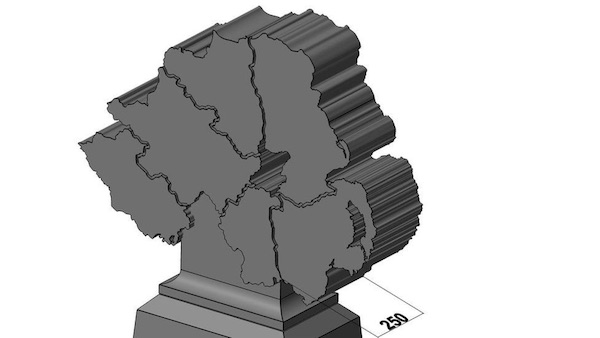
Sinn Féin has agreed to support a series of events to mark the centenary of partition in 1921.
The events will include lectures, social media initiatives, an open day, exhibitions and outreach activities. The first sitting of the original Stormont parliament in June 1921 will also be remembered.
Speaker of the current Stormont Assembly, Alex Maskey, said it was “extremely positive” that the five main Stormont parties – DUP, Sinn Féin, SDLP, Ulster Unionist Party and Alliance - could agree a programme of events.
“While the different views on the centenaries in 2021 have to be respected, there is no doubting that the events they mark shaped our politics and our society for the decades which followed,” he said.
“They also represent 100 years of local parliamentary and political institutions and should be taken as an opportunity to allow us to look forward.”
It is understood the format of the lectures and other events will allow both positive and negative views of partition and the creation of the ‘Northern Ireland’ statelet.
In 1921, London retained the six northeastern counties of Ireland following the end of the War of Independence and the signing of the Anglo-Irish Treaty. Those events brought civil war to Ireland and the conflict in the northeast which continues to this day.
Last week, British Prime Minister Boris Johnson announced his government’s programme to celebrate them.
The Tory plans for the centenary include a ‘Northern Ireland’ showcase in London, a £1 million ‘Shared History’ Fund, an education programme, tree-planting projects and academic events.
Johnson said he celebrated the creation of ‘Northern Ireland’ as it had “paved the way for the formation of the UK as we know it”.
In response to the announcement, Sinn Féin’s Gerry Kelly said: “British Secretary of State is on radio encouraging Irish nationalists to celebrate the British partition of Ireland. Is he really that thick?
“Do all the lands of the world that Britain colonised celebrate colonialism? Why would we celebrate 50 years of one-party, unionist rule?”
One of the more unusual commemorations will see all 90 Stormont Assembly members asked to submit “short thoughts” on the start of partition. In text or video, these will be published on social media over several months beginning in April.
Sinn Féin has, however, drawn the line at the erection of a giant disembodied map of the occupied Six County statelet in the grounds of Stormont. The stone monument had been proposed by hardline unionists, but failed to secure cross-community support.
A Sinn Féin spokesperson dismissed criticism from unionists.
“It would have been more appropriate if the leaders of the unionist parties, who proposed this centenary stone, had first discussed this proposal with the other parties and the other people they share this building with,” they sad.
“Such an approach to the centenary of partition could embrace the very different perspectives of that event and how best to reflect these perspectives in an inclusive and respectful manner.”
They said the stone proposal was “symbolic of past failures of political unionism and of the state”, and that those failures were “not a template for the future”.
![[Irish Republican News]](https://republican-news.org/graphics/title_gifs/rn.gif)
![[Irish Republican News]](https://republican-news.org/graphics/title_gifs/harp.gif)

